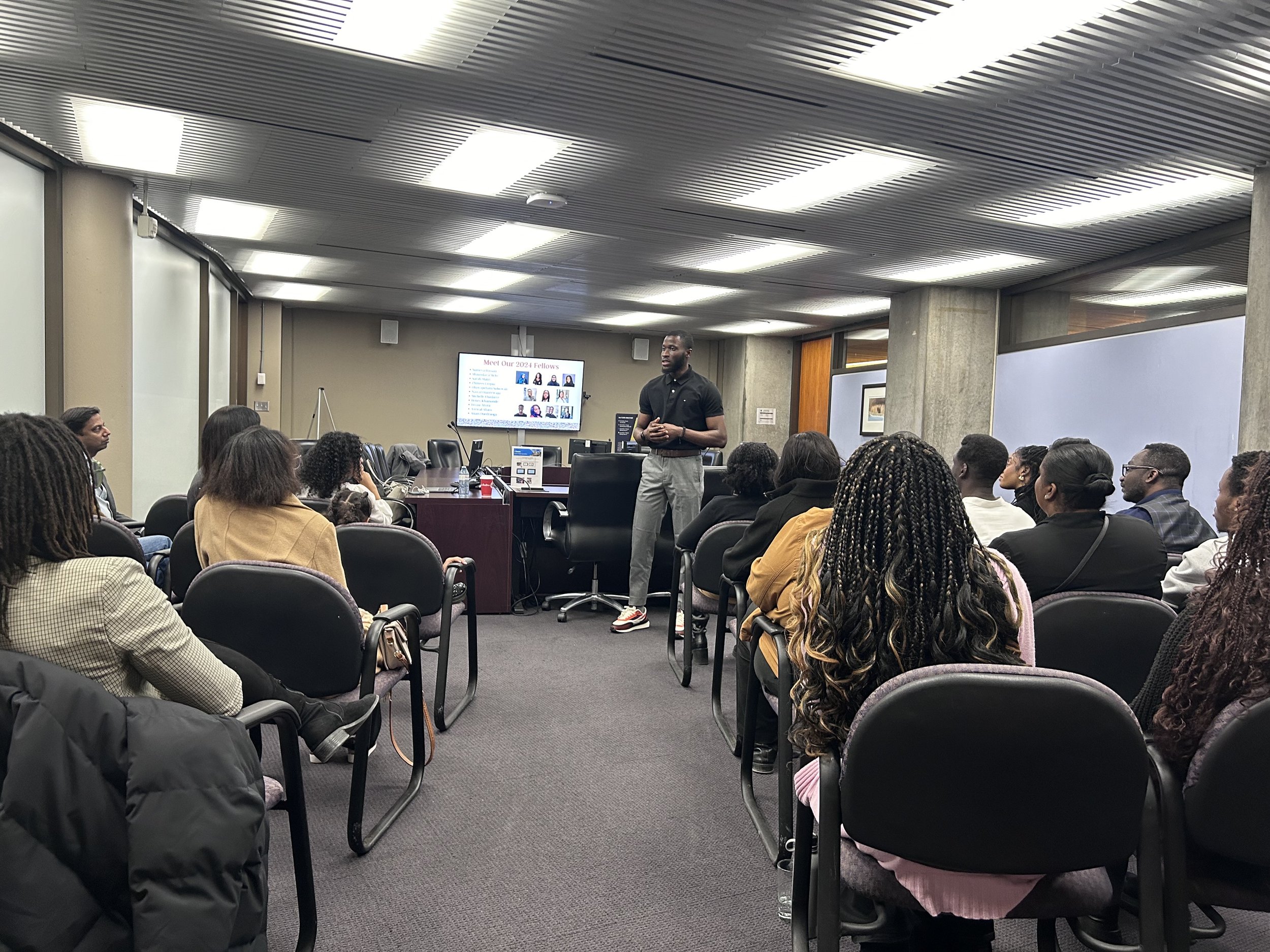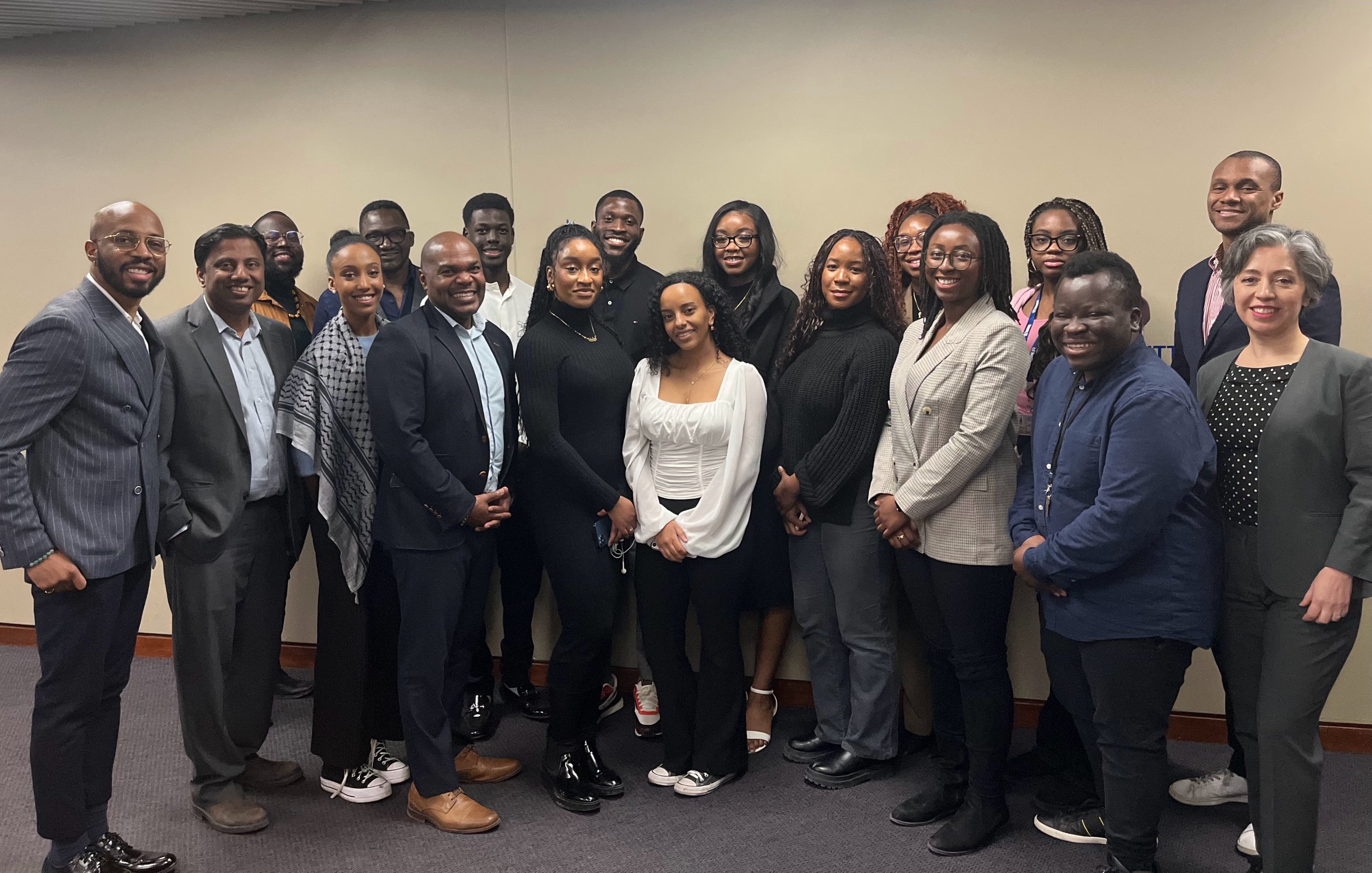
DYF
The Diversity Youth Fellowship is a leadership development building program for racialized youth interested in policy and politics. It aims to provide Fellows with understanding of, and experience in the politics of local governance, in addition to building skills in engaging their larger community.
Our Mission
More than ever, making positive changes in today's political climate requires all the right ingredients. We want to place highly motivated, passionate and hard-working young people on a fast-track to success, building the next generation of Muslim and Black public servants. A non-partisan program, the Youth Fellowship provides politically motivated students the opportunity to complement their academic studies with hands-on experience working with an elected government representative.
Furthermore, placing staff with deep roots in Toronto’s Muslim and Black communities in decision-making spaces will help ensure that the substance, shape and details of what Toronto’s government decides better reflects community experiences.





The Diversity Youth Fellowship:
A Six-Part Initiative
-
Training and onboarding of the cohorts generally begins two months after the initial applications open. Placements typically begin the following month. For example, if the Black Youth Fellowship applications open at the end of August/early September this would result in training taking place in December/January and the 12-week placement component running from February to April.
Outreach: is done through a master list of community organizations, partners and relevant individuals who are able to share to their network/audience. The fellowship also connects with student groups of various schools and universities, specifically those that the fellowship seeks to service. Similarly, the fellowship encourages student group leaders to share the opportunity with professors of relevant classes and add the opportunity to their mailing list.
To ensure a competitive pool of candidates, a month or longer is used to sufficiently spread the opportunity and share it to various networks. The recruitment process itself is a critical component as a thorough selection of fellows determines the success and impact of the program. Various aspects of equity are considered when assessing the pool of candidates. The Toronto-based fellowship focuses on the City of Toronto and therefore focuses on neighborhoods that are often under-represented and under-serviced.
-
The training aspect of the fellowship happens before the in-person placement with City Councillors. These training can and have happened in-person, but have since transitioned to virtual training post-COVID. These training are an integral part of the Fellowship and aim to set the fellows up for success both in their placement and also in their own careers beyond the placement.
The training covers a variety of topics including but not limited to; policy and writing skills, navigating the professional world, adapting to new or unknown situations you may encounter during the fellowship, how to advocate for yourself, and other topics specifically tailored to the identity of the fellows.
These trainings are facilitated by 1-2 mentors who are members of the same marginalized group the fellowship seeks to serve. The sessions run anywhere from an hour to two hours, based on the discretion of the facilitator and the staff organizer.
The trainings can be executed in a number of different ways, as outlined in the examples below but generally consist of the employment of breakout rooms (when being done virtually), discussion prompts, and thought exercises.
Below are examples of non-specific Fellowship trainings and specific Fellowship trainings that have been implemented in the past.
Non-Fellowship Specific Trainings
Practical Internal and External Political Communications:
The aim of this training session is for fellows to gain an insight into how internal and external political communication works in a professional, high-stakes environment. The training also included a talk from an esteemed communications professional as well as a Q&A, allowing fellows to ask any questions they may have.
Networking with Former Fellows:
This workshop presents the opportunity to foster a community for past and present fellows. Fellows can build upon past shared experiences and gain insight from those who have navigated similar paths. This space is an effort to ensure that meaningful relationships can be extended past the fellowships duration.
Communications and Political Organising:
Fellows explore how communication is integral to driving social change. Fellows also get a chance to discuss best practices surrounding how they can enact change in the office in which theyʼre serving, as well as give them a foundation of political literacy to feel confident going into their offices.
Working at City Hall:
An overview of what fellows can expect when completing their 12 hour per week in-person placement at City Hall.
Introduction to Policy at City Hall:
Fellows attending will learn the foundations of policy construction including; the mechanics of policy formation, policy evolution and its journey through bureaucratic channels. The training also discusses the possibilities within policy work, and how they can advocate for impactful change within the framework of municipal government.
Fellowship Specific Trainings
Black Community Organization and Advocacy
Intersectional Anti-Oppression Workshop
Working while Black
Self-Care and Community Care
Anti-Asian Racism Training
-
A network of mentors provides each Fellow with one-on-one support throughout the program. Mentors guide personal and professional development, assist in goal setting, and help fellows make meaningful connections that will support them in achieving their goals. Through our mentorship program, we aim to provide Fellows with guidance from experienced industry experts.
We hope this will include access to professional networks and opportunities that can support them as they pursue careers in politics and public policy. We hope that through the program, mentors and mentees will develop professional and personal relationships that will last beyond the formal duration of the mentorship.
-
The primary objective of these community projects is to establish a connection between the specific community of our fellowship and City Hall, while equipping fellows with the skills to advocate for and bring about significant positive changes in their communities.
The Fellows will be given the chance to apply the tools they have acquired through training and placements to engage in community projects that aim to address social or educational needs within their own community. These projects encompass various forms, such as organizing events that promote civic engagement and connect the community with City Hall, conducting research reports that focus on relevant social issues, or initiating media campaigns.
-
The placement aspect is an integral part of the Diversity Youth Fellowship. Over twelve weeks for twelve hours a week, fellows work with members of Toronto City Council, serving Torontoʼs diverse communities through duties such as case work, event planning, communications and administrative support.
A fundamental element of the placement is the location, which is done on-site at Torontoʼs City Hall. This allows for the opportunity for fellows to receive valuable in-person experience and familiarizes them with the day-to-day workings of a political environment. Many fellows are offered employment post placement within councillorʼs offices post-placement and many continue to collaborate with UARR in other capacities.
-
In order to track the impact and the progress of the Diversity Youth Fellowship, a series of short surveys and interviews were conducted revolving around the Fellows experience with the program. Past fellows/participants had the option to answer these questions either via a Google Form, or through a short, 15 minute interview over Zoom. A small honorarium was given to those who participated. Moreover, as mentioned previously, check-in calls and emails are done in order to ensure that fellows receive an informative and fulfilling experience that aligns with their goals and expectations.
Some questions you can expect:
What led you to apply to the Fellowship? What appealed to you about the fellowship program?
Please describe your community project and its impact on your Diversity Youth Fellowship placement experience, either positively or negatively.
How did the mentorship aspect of the Diversity Youth Fellowship contribute to your experience as a fellow? Do you feel that the relationship between yourself and your mentor enhanced your experience on the fellowship?
What did the fellowship program (if anything) show you about being racialized in policy spaces?
Is there anything you wish would have gone differently? Either about the fellowship in general or the placement itself?
How has the experience with the Diversity Youth Fellowship (if at all) informed your career aspirations or future goals? What are you up to now?
Were the expectations you had before entering the Diversity Youth Fellowship met?